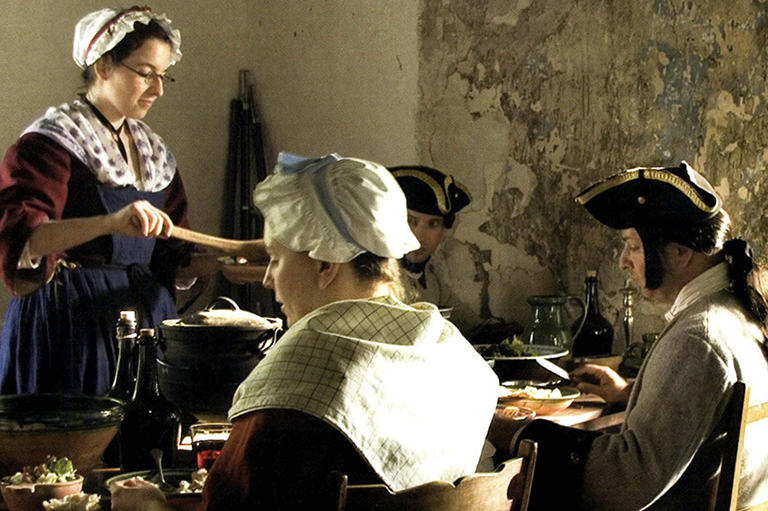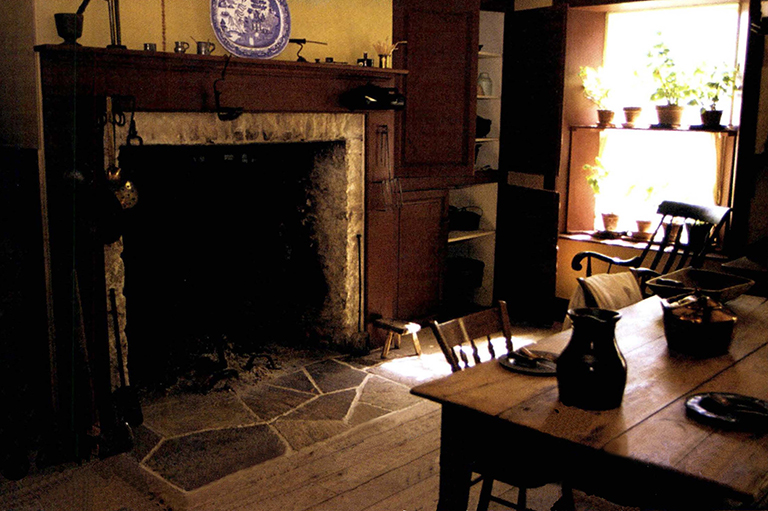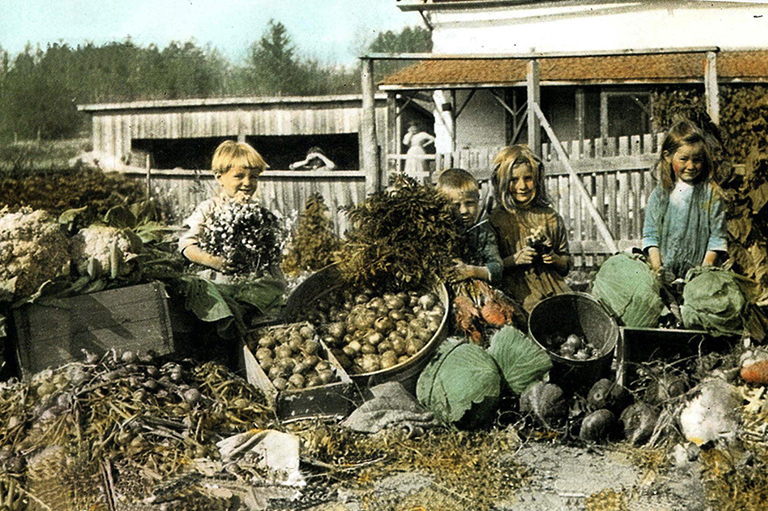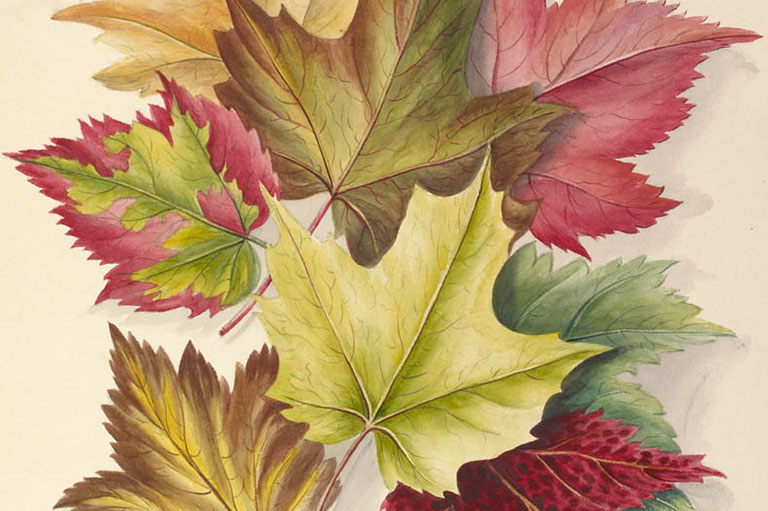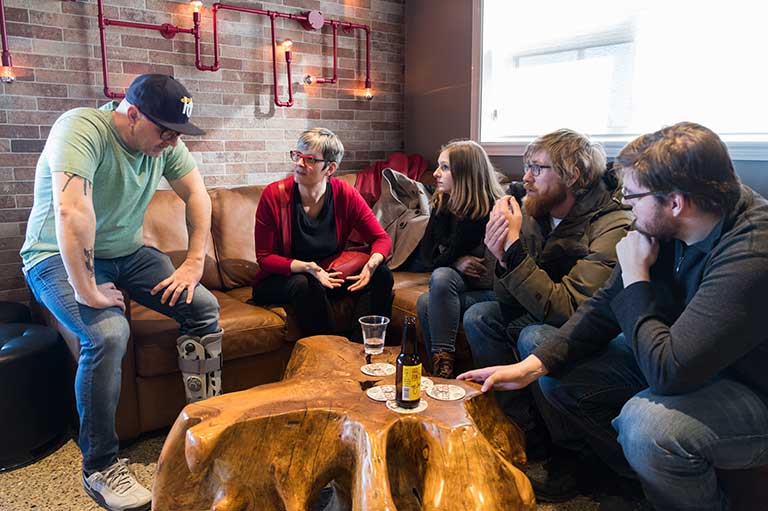Early Fusion in Pictou
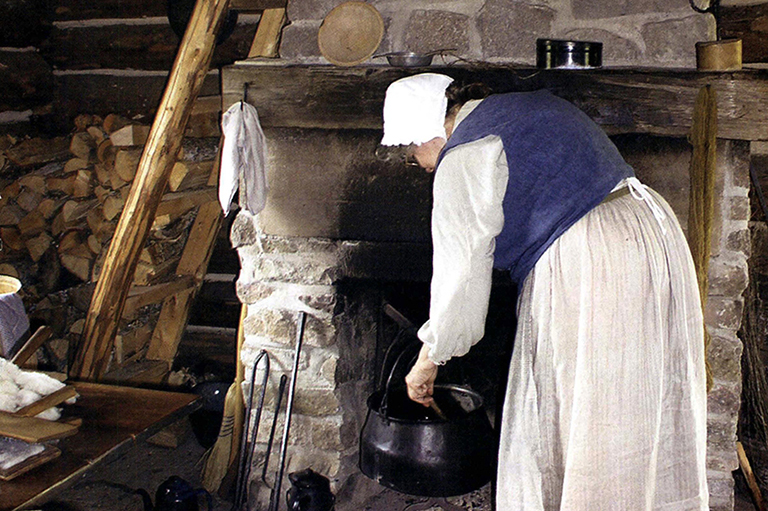
This imaginary account takes place in Nova Scotia following the expulsion of the Acadians (1755-62) and the arrival of waves of immigrants from Great Britain, continental Europe, and thirteen British colonies that were declared the independent United States of America in 1776. Among the new settlers were German-speaking Protestants, a few of whom settled in the Tatamagouche area. The first Scots to land in Pictou arrived on the Hector, an actual ship, in 1773. The parents of the fictional twelve-year-old “Janet Fraser” were on that ship.
Monday, May 22, 1786: Papa came home today and told Mama that he had met a man from Tatamagouche, about 30 miles from us here in Pictou. He said he invited Mr. Langille and his family, who are German-speaking people, to sup with us on Saturday. They will come by boat, and they will have to stay overnight at least. That should be fun. I hope they have a girl my age.
Tuesday, May 23, 1786: Mama is wondering what to cook for our guests when they come. She says we should grind some wheat into flour to make griddle scones, but turning that hand quern is so arduous, we’ll probably settle for our beloved oatcakes instead. That’s fine with me, as long as we have enough oats to make porridge for breakfast. And we’ll have to be sure that Bossie provides plenty of cream to dip our spoonfuls of porridge in. Since we don’t have enough wooden bowls for everyone, we’ll have to serve the porridge in one communal bowl. But we’ll each have a deep wooden spoon so we can lift some of the porridge and then dip it into the cream. Yum! And there won’t be any concern about eating them in the traditional way—that is, standing up. There won’t be enough chairs for us all to sit, anyway
Wednesday, May 24, 1786: Mama says we will start with a soup. It should really be cock-a-leekie (chicken and leek), but none of our hens is old enough to have stopped laying, and with eggs as precious as they are, we can’t kill a productive hen just to make soup. Papa says there’s still some finnan haddie (smoked haddock) hanging in the smokehouse and a fairly good supply of potatoes, so we can have cullen skink instead. I’m glad, because that’s my favourite. Funny name, but skink is the Scottish word for soup, and our family still speaks the Gaelic. Mama says to make enough skink for twelve people she will need two pounds of smoked haddock, eight medium-size potatoes, two onions, and a quart of milk for the broth.
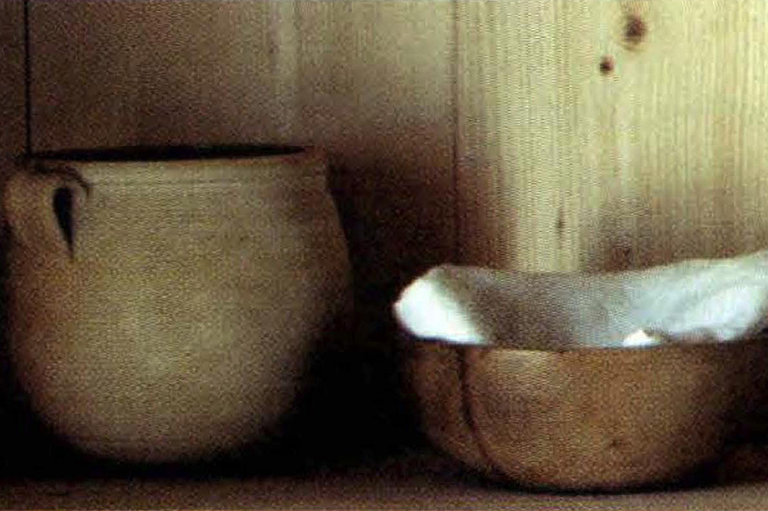
Thursday, May 25, 1786: Today, Mama is trying to decide what the main course will be. Imagine! More than one course for a meal! Papa says it’s so special that he will dress in his kilt and we are to wear our best blue home-spun dresses. Mama says there is always salmon fresh from the East River. It will be delicious when poached. Or, maybe she’ll plank it by splaying it on a thick oak board, and setting it before the open fire to roast until the juices run sweet and buttery. Mama says she’ll prepare clapshot or tatties and neeps to go with it. I just love the mixture of mashed potatoes and turnips, especially with a large piece of butter melting in the centre.
Friday, May 26, 1786: Tomorrow our guests will arrive. Mama tells me we’re even going to have dessert! Scotch forach! It’s made by stirring fine oatmeal into whipped cream. It’s a sweet treat we don’t often get to enjoy. Papa says he’s going to need extra cream, too, to make some atholl brose. He says he has just enough whisky left to mix with honey and cream so he and Mr. Langille can drink a toast.
Saturday, May 27,1786: They’re here, and Marguerite is twelve, exactly my age. She has two brothers to keep my own brothers company, and a younger sister, who is five, that she has to look after. Like me, Marguerite also has to help her mother with the cooking. She said her favourite soup is kartoffelsuppe, a mixture of sauerkraut, potatoes, salt pork, and browned flour to thicken it. It’s a German thing. Sounds funny to me, but she thinks our cullen skink is funnier.
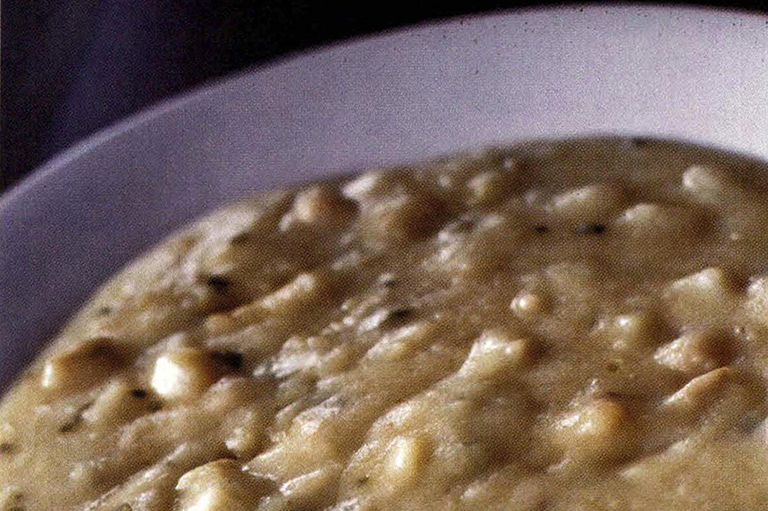
Sunday, May 28, 1786: Marguerite says her favourite fish dish is house bankin, sometimes called Dutch mess. It’s made of salt cod and pork scraps. We don’t have anything like that. One thing we have in common is what we call hotchpotch and they call hodgepodge. This is a delicious dish of new vegetables, served with cream. But it’s too early in the year for that. We’ll have skirl in the pan for tomorrow’s breakfast. Is there a better way to eat oatmeal?
Monday, May 28, 1786: I am so sad. Marguerite and her family left today to return to Tatamagouche. Our little house seems so empty without the Langilles. I guess there really is something to the Gaelic proverb: Better a small house full than a large house empty.
Save as much as 40% off the cover price! 4 issues per year as low as $29.95. Available in print and digital. Tariff-exempt!
Anguille a petite-eau (Fire fishing for eel)
Like the Mi’kmaq people of the Maritimes, the Acadians fished for eels in the winter by spearing them through holes in the ice. In the summer, the practice became a dramatic nighttime ritual known as fire fishing.
A bundle of bark and pine wood soaked in turpentine was placed over the bow of the boat. Paddling silently, with flames lighting the water ahead, one fisherman stood by with a trident-like spear called a fouine.
Fish drawn to the light would soon find themselves speared, cut in short strips, fried in butter, seasoned with salted herbs and simmered in a skillet for just under an hour.
—Christopher Webb
The Way We Ate
We hope you’ll help us continue to share fascinating stories about Canada’s past by making a donation to Canada’s History Society today.
We highlight our nation’s diverse past by telling stories that illuminate the people, places, and events that unite us as Canadians, and by making those stories accessible to everyone through our free online content.
We are a registered charity that depends on contributions from readers like you to share inspiring and informative stories with students and citizens of all ages — award-winning stories written by Canada’s top historians, authors, journalists, and history enthusiasts.
Any amount helps, or better yet, start a monthly donation today. Your support makes all the difference. Thank you!
Themes associated with this article
Advertisement
With 7 uniquely curated newsletters to choose from, we have something for everyone.

